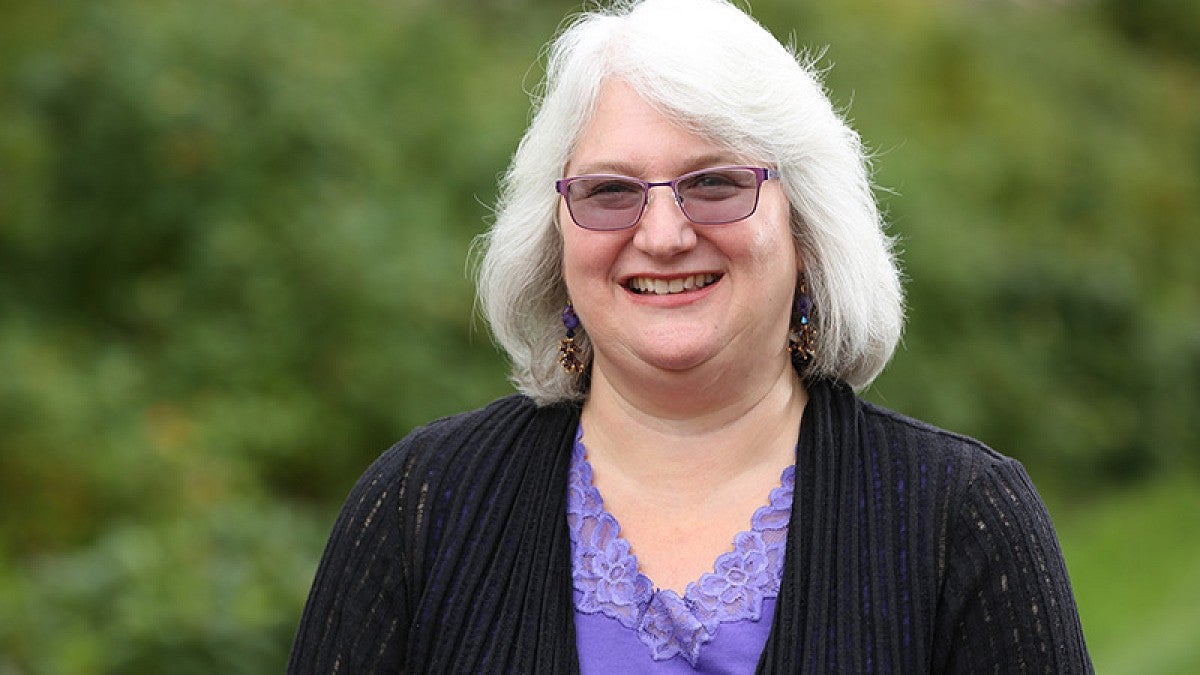Editor’s note: Duck of the Week is a section in Around the O Workplace that highlights UO employees and their work, and to help build community by learning more about our coworkers. Each story features an interview with one employee, in his or her own words, with light editing for clarity and length.
How long have you worked at the UO?
I’ve worked at the UO in a professional capacity for 35 years. I was a GE for a couple years before that as well. I’m currently in a transition period right now, and just shifted to a part-time post-retirement position.
Note: Hilary retired from the University of Oregon on Nov. 1. She is currently working with the university in a part time consulting role for a few months on complicated compliance and access issues as a national search for her successor continues.
Tell us about your work:
My work has always been in the area of academic advising and disability services. The divisions have changed and shifted, but it’s all about supporting student access and inclusion by removing barriers so that students can be successful and graduate.
One area that has really changed is the one around mental health. Students with disabilities didn’t use to include students who were experiencing depression or anxiety. In the last 15 to 20 years, the narrative has really shifted to students recognizing that if they need support with those issues, we’re able to be a resource on campus for that. The largest numbers of students we work with are dealing with mental health challenges.
What does your typical day look like?
Our office is currently working with about 2,000 students who experience disability. Part of my responsibility is around legal compliance and the other is to facilitate campus access and inclusion from a social justice lens. The university has some very specific legal obligations to support our students, so part of my job in directing the Accessible Education Center is to make sure that we’re directly supporting students, programs and activities that contribute to that compliance. We work with faculty to make sure they understand their responsibilities in supporting students as they advocate for themselves as well. The other part of my work is just day-to-day office operations. I work directly with students as well, and occasionally conduct trainings and presentations.
The pandemic has really changed a lot of what we do. One of the first things we learned after going remote is that we don’t have to meet in person to support students. Zoom and Microsoft Teams are tools that are now part of our day-to-day work. For students who experience disabilities, that can be really helpful if it’s painful or difficult for them to get to campus or move from building to building. We also incorporated auto-generated captions into remote coursework and hired captionists to assist with captioning.
The nature of testing accommodations for students was different when we went remote as well. Now that we’re back in person, that’s kind of getting back to where it used to be, where we support students who might need different types of accommodations to take exams.
What do you like about working at the UO?
The UO is a good university and a great institution to support students. We have a long history of really caring about the student experience. When we admit students, we want to make sure that they can graduate. We’re always working on different opportunities to support students in that way, and the people on campus are all working hard towards the common goals of making things work for our students.
What keeps you motivated?
I’m motivated by the people, the collaboration and everyone working hard towards mutual goals. We got really creative during COVID with supporting each other, like introducing humor into the workplace more. Our time working remotely was a good reminder of just how powerful human connection can be.
For me, the reason why I stayed so long doing the work that I do is just being able to make a difference in the lives of students. There’s been many cases where students would not have stayed at the university if it wasn’t for the support and help of our office.
What is one piece of advice you would give to your younger self?
Be patient with how long change can take, especially in terms of campus issues. And take lunch breaks.
Hilary Gerdes was part of the Accessible Education Center.
Do you know someone who should be Duck of the Week? Nominate a UO employee.


